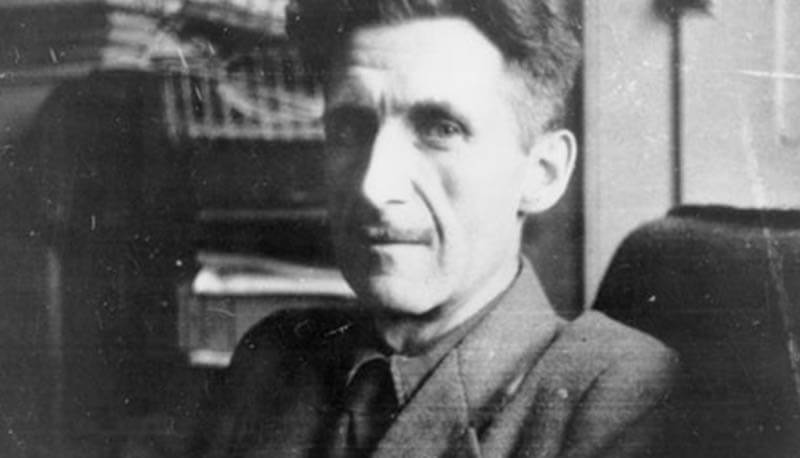Concetti Chiave
- George Orwell, nato in India nel 1903, lavorò per cinque anni nel servizio civile imperiale in Birmania.
- Deluso dalla sua classe sociale, trovò ispirazione tra i poveri per scrivere tre romanzi sulla grande depressione degli anni '30.
- Nel 1936, combatté in Spagna dalla parte repubblicana, ma rimase disilluso dagli orrori dei comunisti, criticandoli in "Animal Farm".
- Il suo lavoro successivo include il celebre romanzo "Nineteen Eighty-Four", una visione della vita sotto un regime totalitario.
- Oltre ai romanzi, Orwell scrisse saggi e un'autobiografia, pubblicata postuma nel 1953.
George Orwell's early life
George Orwell (1903-1950) was born in India and served in the Imperial civil service in Burma for 5 years (1922-27). Then he became disgusted with the social class to which he belonged and sought contact with the poor and the destitute, among whom he found material for 3 novels documentating the great depression of the 30s, "Down and Out in Paris and London" (1933), "Keep the Aspidistra Flying" (1936) and "The Road to Wigan Pier" (1937).
Orwell's political disillusionment
In 1936 he went to Spain to fight on the Republican side, but was soon disillusioned by the atrocities of the Communists, whom he attacked in "Animal Farm" (1945) an anti-Communist fable. His later work included the famous novel "Ninetten Eighty-four" (1948), a vision of life under a totalitarian regime, "Shooting the Elephant" (1950), a collection of essays, and his autobiography "Such, Such were the Joys" (published in 1953).







 Accedi a tutti gli appunti
Accedi a tutti gli appunti
 Tutor AI: studia meglio e in meno tempo
Tutor AI: studia meglio e in meno tempo